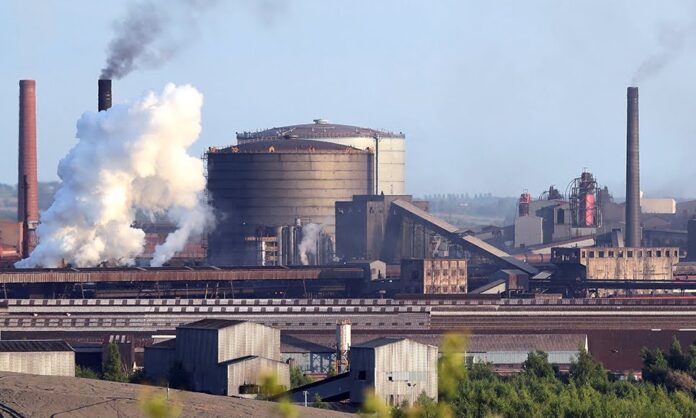Government aims to delay collapse at Scunthorpe steelworks by funding raw material imports.
The government is racing to prevent the shutdown of British Steel‘s Scunthorpe plant, offering to buy vital coking coal to keep the blast furnaces running—just days before operations risk grinding to a halt.
According to BBC sources, the Department for Business and Trade has proposed to finance shipments of imported raw materials, a temporary fix that could buy critical time while negotiations over the plant’s long-term future continue. The offer, reportedly being put to British Steel’s Chinese owners Jingye in writing, comes as one of the plant’s two operational blast furnaces is scheduled to shut down on 14 April.
Without urgent action, insiders warn, British Steel’s operations could cease within weeks—possibly permanently, given the complexity of restarting blast furnaces.
The crisis emerged after British Steel warned that stocks of coking coal and iron ore—key ingredients in steelmaking—were running out. A shipment of coking coal can take up to 45 days to arrive from overseas, and the next two days are critical for securing payment and placing orders.
The government’s intervention reflects the severity of the situation. While ministers have expressed a preference for a commercial solution, they have not ruled out nationalisation—a step backed by unions and Reform UK, as well as the Green Party, which is calling for a transition to low-carbon “green steel”.
On Wednesday, Business Secretary Jonathan Reynolds met with British Steel and Jingye executives. A joint statement struck a hopeful tone, noting “continued cooperation in talks to find a way forward” and praising Jingye’s handling of the workforce.
Still, the underlying conflict remains unresolved. Jingye claims the blast furnaces are “no longer financially sustainable.” Government sources, meanwhile, have grown frustrated at what they perceive as Jingye’s effective withdrawal from operating the plant, despite the legally required 45-day consultation period triggered by job risk announcements.
Inside sources now believe long-term Chinese involvement in British steelmaking may be nearing its end. Ministers are said to be quietly seeking a new commercial partner to take over Scunthorpe’s steel operations, though no names have yet emerged.
For now, however, attention is on the urgent short-term need to secure raw materials and avoid an irreversible shutdown.
One proposed solution involves the government directly purchasing materials and covering costs, provided Jingye agrees to continue running the site. This arrangement would sidestep delays and keep the furnaces active while broader talks play out.
A temporary shutdown of the “Bess” blast furnace is scheduled to extend remaining supplies. That would leave only “Anne”—one of the last two operational blast furnaces in the UK—running. Shutting down a furnace safely requires a risky “Salamander Tap” procedure to drain molten metal, but engineers are reportedly confident in its execution.
Union leaders have described the crisis as an “extreme emergency.”
“We just need them to be paid for,” said Alun Davies of the Community Union. “Once that happens then there can be further discussions with the government about how we secure steel making for Scunthorpe.”
Linda McCulloch of Unite reiterated union calls for nationalisation, urging ministers to prioritise preserving jobs and protecting strategic industrial capacity.
With 2,700 jobs and the future of UK steelmaking on the line, the next 48 hours may prove decisive.
